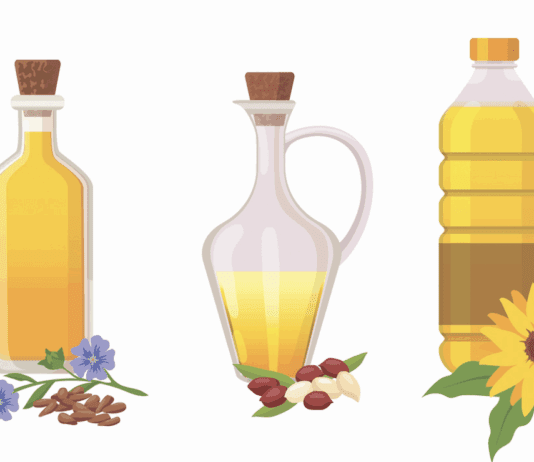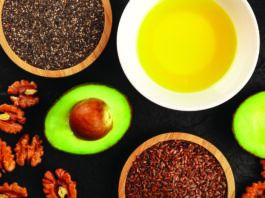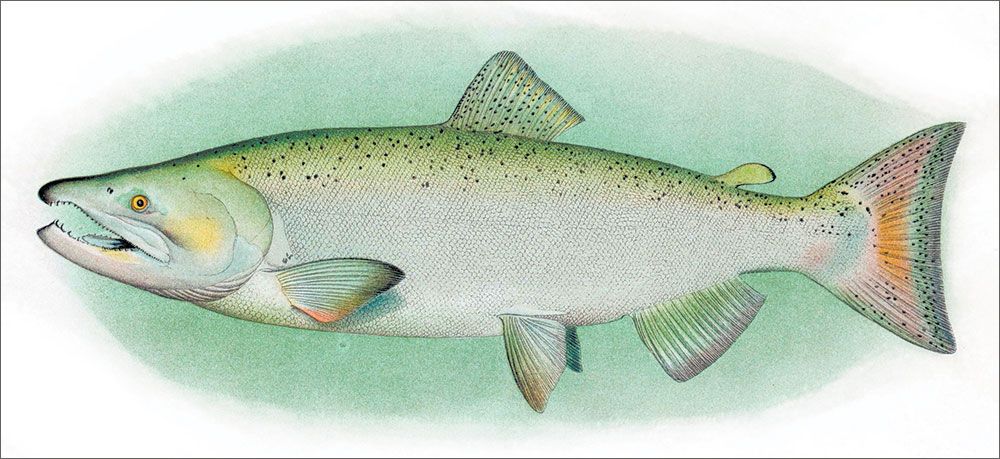FDA Cracks Down on Coconut Claims
Products containing coconut, coconut oil and coconut milk are popping up everywhere, with marketers touting coconut as the latest superfood. But a recent warning letter from the US Food and Drug Administration cautions coconut boosters not to overreach. The FDA warned that coconut products cant be labeled as healthy if they contain more than 1 gram of saturated fat or more than 15% of calories come from saturated fat. Some have claimed that the saturated fat in coconut is different because its mostly lauric acid, which a few small studies suggest is metabolized differently than other saturated fats. But the FDA isnt buying that argument, noting that coconut products might contain as much as 16 grams of saturated fat per serving.
Americans Belly Fat Booming
The obesity epidemic may be leveling off, but more Americans are carrying fat around the middle-the most dangerous kind of obesity. A new Centers for Disease Control and Prevention study, published in JAMA, says the rate of adult abdominal obesity has shot up from 46% in 1999-2000 to 54%. Abdominal obesity is defined as a waist size of more than 35 inches for women and 40 inches or more for men. During the 12-year span of the study, womens average waist size expanded two inches to 38 inches and men added an inch, to 40 inches.
Fat Choices Better But Still Fall Short
Results from the Minnesota Heart Survey, spanning nearly 30 years and encompassing 12,526 participants, show some progress in healthier fat consumption-but still a long way to go. Published in the Journal of the American Heart Association, the study reported that consumption of trans fat and saturated fat has dropped. Overall trans fat intake fell about a third, but is still about double the target of less than 1% of calories set by the Heart Association in 2006. Saturated-fat intake fell from 13.7% of total calories to 11.4% for men and from 13.5% to 11.4% for women. Thats still above the 10% maximum recommended by the Dietary Guidelines for Americans and far more than the Heart Associations 5%-6% goal.
Q. I read in your newsletter that older people may need more protein than...
Q. I read in your newsletter that older people may need more protein than the recommended 0.8 grams per kilogram of body weight to maintain muscle mass as they age. How much more, at age 75, might I need? Is 1.0 gram per kilogram of body weight too much?
Q. What are the pros and cons of eating raw fish, as in sushi?
Q. What are the pros and cons of eating raw fish, as in sushi?
Poll: Most Americans Still Dont Get It on Fats
Science may have debunked the low-fat fad, but most Americans still havent gotten the word. A Gallup poll reports that nearly twice as many of us are trying to avoid fat in our diets (56%) as those seeking to cut down on carbohydrates (29%). Among the 29% who say they are trying to lose weight, 73% are actively avoiding fats compared to 44% cutting down on carbs. Thats despite recent headlines reporting that low-carb diets are more effective than low-fat plans for weight loss.
Low-Carb vs. Low-Fat: Which Is Best?
A recent headline-grabbing study seemed to settle the issue of low-carb versus low-fat diets definitively, reporting that a low-carb diet was not only more effective for weight loss, but also better for cardiovascular risk factors. In the yearlong study of 148 obese volunteers, those assigned to a low-carbohydrate regimen lost nearly eight pounds more and showed greater improvements in triglycerides, HDL cholesterol and a standard risk score for heart disease than a low-fat group. Both groups saw similar decreases in unhealthy LDL cholesterol. Researchers said the cardiovascular findings were notable because of concerns that low-carb diets might boost unhealthy cholesterol levels as dieters substitute fats for carbohydrates.
Will You Be Part of Salts Global Reach?
If youre worried about getting too much sodium from salt in your diet, a new globe-spanning study reports you should have company among 99% of the worlds population. Daily sodium consumption in the 66 countries studied averaged 3,950 milligrams-nearly twice the maximum recommended by the World Health Organization (WHO). That excess sodium intake, researchers estimated, contributes to about 1.65 million deaths a year worldwide from cardiovascular causes.
Does New Study Mean Butter Is Back?
Somewhere, Julia Child is smiling. A new review published in Annals of Internal Medicine has given ammunition to those, like the famous French chef, fond of cooking with butter and other sources of saturated fat. The meta-analysis looked at 27 prior clinical trials and 49 observational studies, totaling more than 600,000 participants. It concluded that current evidence does not clearly support cardiovascular guidelines that encourage high consumption of polyunsaturated fatty acids and low consumption of total saturated fats.
Smart Shopping for Salmon
Among the many pleasures of summer is the return of fresh, wild-caught salmon to local supermarkets. In general, wild salmon are in season from May through September, depending on species. Richly flavored and easy to prepare in a variety of ways (see recipe on the next page), its no wonder salmon is Americas third most-consumed seafood, behind only shrimp and tuna, at about two pounds per person annually.





























